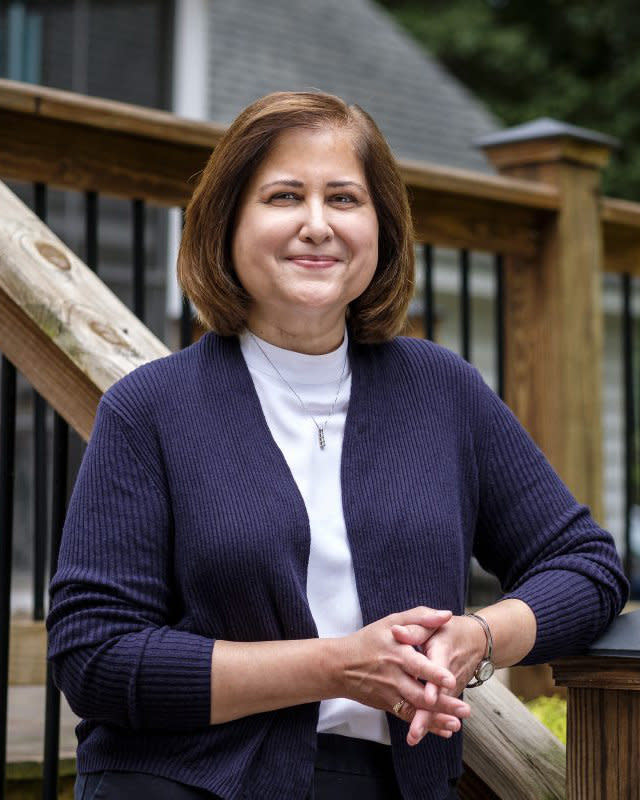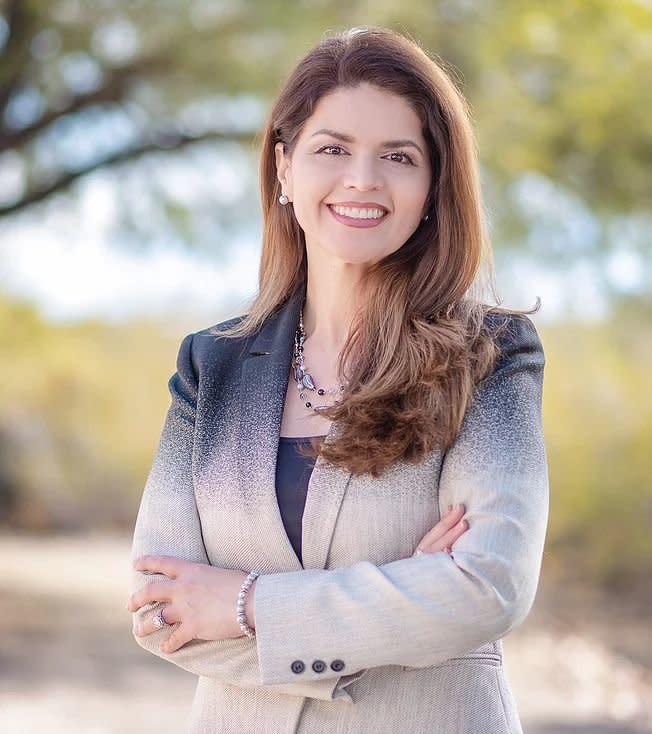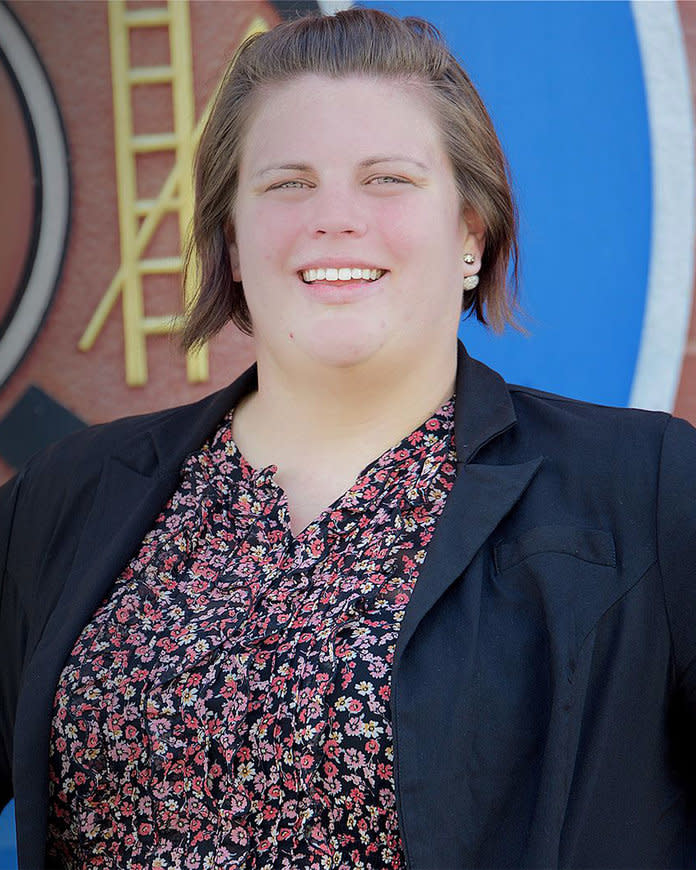This Week, Women Across the Country Proved Just How "Electable" They Really Are
It was hard not to think of November 5th as a predictor. Tuesday marked an opportunity for voters to flex their civic-participation muscles ahead of the presidential election in 2020 to choose candidates who affect their communities on the micro level. And their choices speak volumes. Women candidates who spoke to job security, affordable housing, and protecting women’s rights campaigned on issues that deeply matter to their constituents — and they won. As a result of these so-called smaller elections, big change has begun to take hold.
Tuesday’s elections, particularly in red states, felt like direct commentaries on Donald Trump. The president himself said Republicans losing in states he had won “sends a really bad message.” He said those words in Kentucky, which ultimately elected a Democratic governor along with a lieutenant governor who announced she was pregnant on the campaign trail. Not only did the elections prove that women are “electable,” quieting that old drum beat, but that they are breaking ground in ways that are pivotal to our democracy. In Virginia, female victories contributed to flipping the state’s legislature, turning it blue for the first time in 20 years. Across the country, women candidates have been hustling. They knocked on doors and built their platforms on the needs in their communities. From first-time mayors to the youngest-ever city councilmembers, women candidates flipped districts, won contested seats, and proved that the country isn’t just ready for change — it has already started voting for it.
RELATED: Why Are Some States Quietly Trying to Make It Easier to Marry Young Girls?
Having a new class of women take office is flat out good for everyone. First of all, representing a diversity of voices and viewpoints actually improves decision-making. Yes, Democratic women ran for Congress in record numbers in 2018, but this time around more Republican women entered races, too. These 2019 elections show women’s leadership is a boon to society as a whole — and that “women” are not a political monolith only represented by one candidate and platform. Above all, the candidates focused on issues they heard about directly from voters, giving an inspiring reminder that democracy is a dialogue, and it works best when everyone participates. Here are a few of the 2019 winners everyone should be talking about.
Safiya Khalid, Lewiston City Council, Maine

Khalid, who endured significant abuse and trolling throughout her campaign, is the first Somali immigrant to serve on the Lewiston City Council, in addition to being the youngest councilmember to serve at 24. During her celebration speech, Khalid said her campaign was proof that “community organizers beat internet trolls,” and was motivated by what she described as a “lack of diversity” in Lewiston city government. She’s vice chair of the Lewiston chapter of Emerge Maine, which helps women run for office, and one of her key issues is investing in the community through affordable housing: She is aiming for a $30 million federal government grant for housing, to establish codes that would guarantee every rental property is a safe place to live. Khalid was a Run for Something candidate, an organization that supports and recruits young progressives to run for office, and according to reporting from 13WGME, she was personally knocking on doors with a goal of reaching every Democratic or unenrolled voter by election day.
RELATED: Kamala Harris is Ready to Talk About "the Elephant in the Room"
Nadia Mohamed, St. Louis Park City Council, Minnesota

Running on racial equity, youth engagement, climate action, and affordable housing, Mohamed served on the St. Louis Park Multicultural Advisory Committee, and was such an engaged activist in her community, she was a co-recipient of the 2019 St. Louis Park Human Rights Award. At 23, she is the first Somali and first Muslim woman to serve on the City Council, cinching victory with 63% of the vote. Her platform prominently featured youth engagement and affordable housing, among other issues, with her website noting that “today's housing crisis has made it nearly impossible for low-income families to buy, or even rent, a house in St. Louis Park.” She's fighting to end generational poverty, and clearly has an engaged public on her side.
Ghazala Hashmi, Virginia State Senate

Hashmi immigrated to the U.S. as a child and is a former community college professor. She says that, in the 400 years of the General Assembly, the oldest legislative body in America, Virginia hasn’t elected a Muslim woman. On Tuesday, Hashmi became the first. In her own words, “I have lots of reasons for running: I want to improve our public education system; I want to protect a woman’s right to choose; I want to enact common sense gun safety reforms; and I want to preserve our environment for future generations. All of these very critical reasons inform why I am running,” she wrote on Medium. But her true catalyst came when she found herself wondering, “am I still accepted in America, as an American?” Hashmi put forth comprehensive plans that connected with voters on a local scale, including quality public education and early childhood education, workforce development, and comprehensive healthcare, wanting to improve quality of life for Virginia residents.
RELATED: Eva Longoria Puts On Her “White Male Privilege Pants” When She Wants to Get a Job
Regina Romero, Mayor of Tucson, AZ

On Tuesday, Romero became the first Latina to serve as mayor, following three terms as a councilwoman. Her biggest priority is putting together a bold climate action plan for Tucson, in addition to creating a small business incentive program that could move the local economy forward. Winning with 56% of the vote, Romero also became the only Latina mayor in America’s largest 50 cities. Romero’s platform is solution-focused, outlining detailed plans to create jobs by expanding industries based in Tucson and creating business incubators to support small business growth, in addition to establishing a Mayor’s Education Task Force to improve graduation rates and college enrollment.
Juli Briskman, Loudoun County Board of Supervisors, Virginia

In a plot twist almost too good to be true, Juli Briskman (also pictured at the top of this article), who gained public attention for flipping off President Trump’s motorcade in 2017 and was subsequently fired from her role as a government contractor, just become an elected official in the outer D.C. area. On Tuesday night, she was elected to serve on the Loudoun County Board of Supervisors. Briskman ran on “local issues” including an interconnected system of parks and trails, supporting women in the workforce, and fully funding schools. She is also a Moms Demand Action volunteer, working for gun safety. Ironically, according to reporting by Vogue, Briskman’s district also includes the Trump National Golf Course.
RELATED: The Government Is Using Women’s Period Information Against Us
Jacqueline Coleman, Lt. Governor of Kentucky

With the election of Democratic Governor Andy Beshear came the election of lieutenant governor Jacqueline Coleman. Coleman, who announced her pregnancy while campaigning in August, is the founder of Lead Kentucky, a nonprofit that ensures Kentucky college women are prepared to seek leadership positions. Coleman is also an assistant principal (and was a basketball coach who was once named Coach of the Year). Her election is an antidote to former governor Bevin’s ongoing fight against public school teachers, and came the day after President Trump rallied on former Governer Bevin’s behalf. At press time, however, Bevin had yet to concede the race and was asking for a re-canvassing of votes; the New York Times reports he was behind by 5,000.
Trish Gunby, House of Representatives, Missouri's 99th House District

Gunby, who ran on policies including universal background checks for gun purchases and protecting abortion rights, didn’t just win a hotly contested election: She flipped her district. Winning with 54% of the vote, Gunby plans to jumpstart work on an expansion of absentee voting and making voter registration simpler, something that impacts all local citizens. Gunby also wants to make businesses and the community more inclusive, pointing out that LGBTQ individuals aren't protected from being discriminated against and even fired from their jobs in the state. “I think there are communities that are not being served. So that sends a message that we are really not a progressive, inclusive, welcoming state and community.” Guess Missouri voters would like to change that.
Alison Brown, Indianapolis City-County Council

The former home of Vice President Mike Pence elected four openly queer council members on Tuesday night. Among them is Alison Brown, the first LGBTQ woman to serve on the council. Alison is a Moms Demand Action volunteer, fighting for “gun sense.” Having previously worked with organizations like Freedom Indiana, which seeks to update Indiana’s civil rights laws to protect LGBTQ individuals from employment and housing discrimination, and serving as Executive Director of Indiana Transportation Association, Alison’s community experience readies her to make significant change in Indianapolis.

